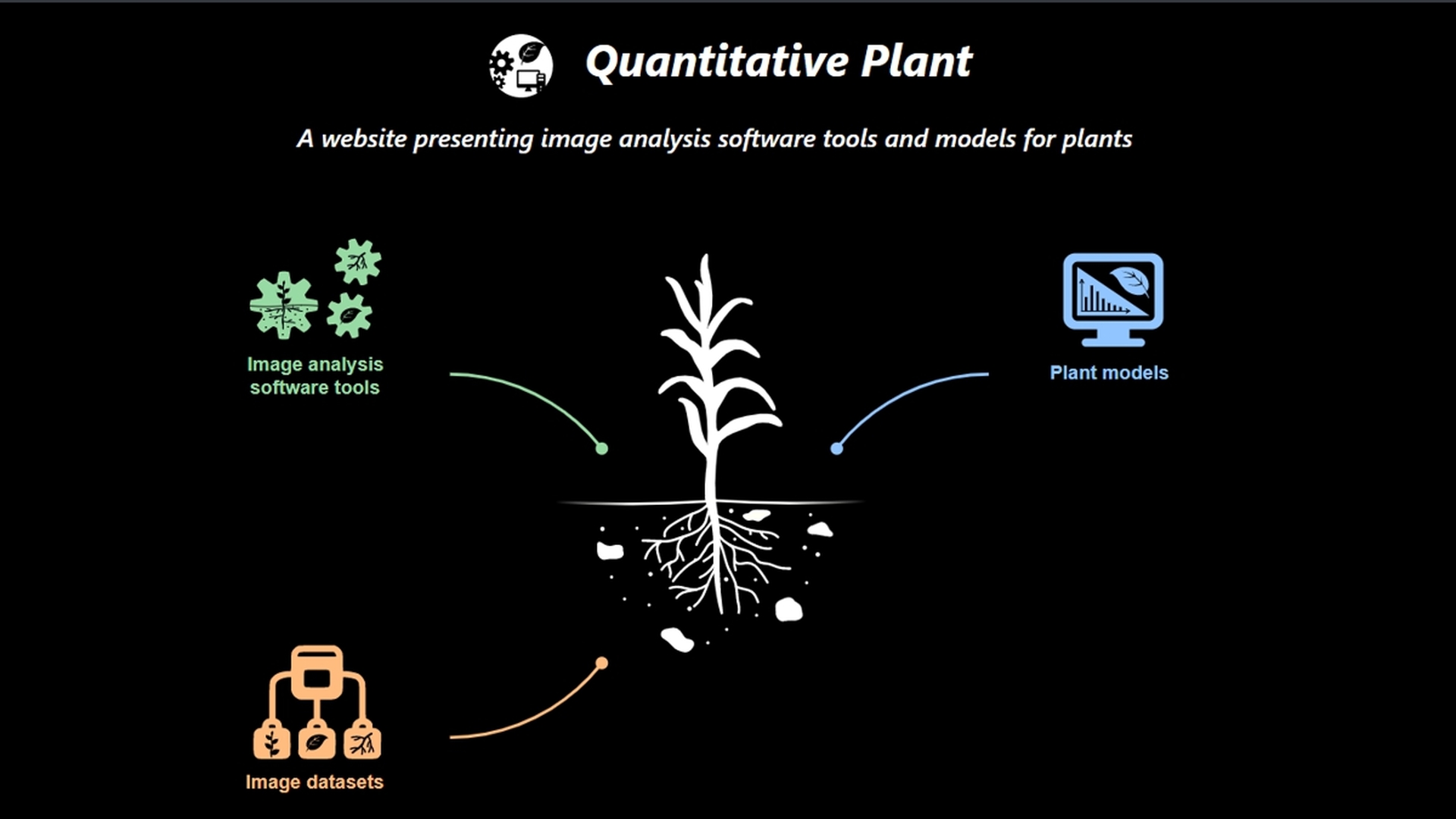Modelling Portal “Quantitative Plant” Now Online

The modelling pilot Quantitative Plant is now operational. The online portal offers image analysis software tools, image data sets and plant models.
The plant phenotyping field is too immense to observe all combinations of genotypes, growth stages and environmental conditions. Therefore, capturing the essence of the phenomic data in models is a pivotal approach. Feeding phenome data into structural plant models, functional-structural plant models and process-based crop simulation models is a way to derive predictions of integrated (e.g. yield) or functional traits (e.g. root system architecture) for existing or new genotypes and across a wide range of target environments or management practices.
Quantitative Plant allows users to take advantage of such models. Referencing plant and crop simulation models, the portal raises awareness about the diversity of models and their applications. The portal presents each model concisely in a consistent framework offering a range of different filters. Models are described by their general characteristics (e.g. programming language, plant part studied…) and uses (e.g. species studied, success-stories involving model and phenomic data…). In this way, Quantitative Plant offers high visibility and findability for plant models improving plant traits analysis.
Identifying the optimal software for scientific image analysis can be challenging due to the fast development of new software solutions and the lack of a central repository. Quantitative Plant, built as a web-based repository extending the “Plant Image Analysis”,provides also a comprehensive selection of image analysis software tools that can be easily searched using various filters.
In addition, the online portal provides user feedback, evaluations and new submissions of plant models and image analysis software tools as well as access to image data sets from various sources. Quantitative Plant is supported by EMPHASIS, Forschungszentrum Jülich, ROSI and UCLouvain with the aim of helping researchers to find optimal tools and models for analyzing plants.
